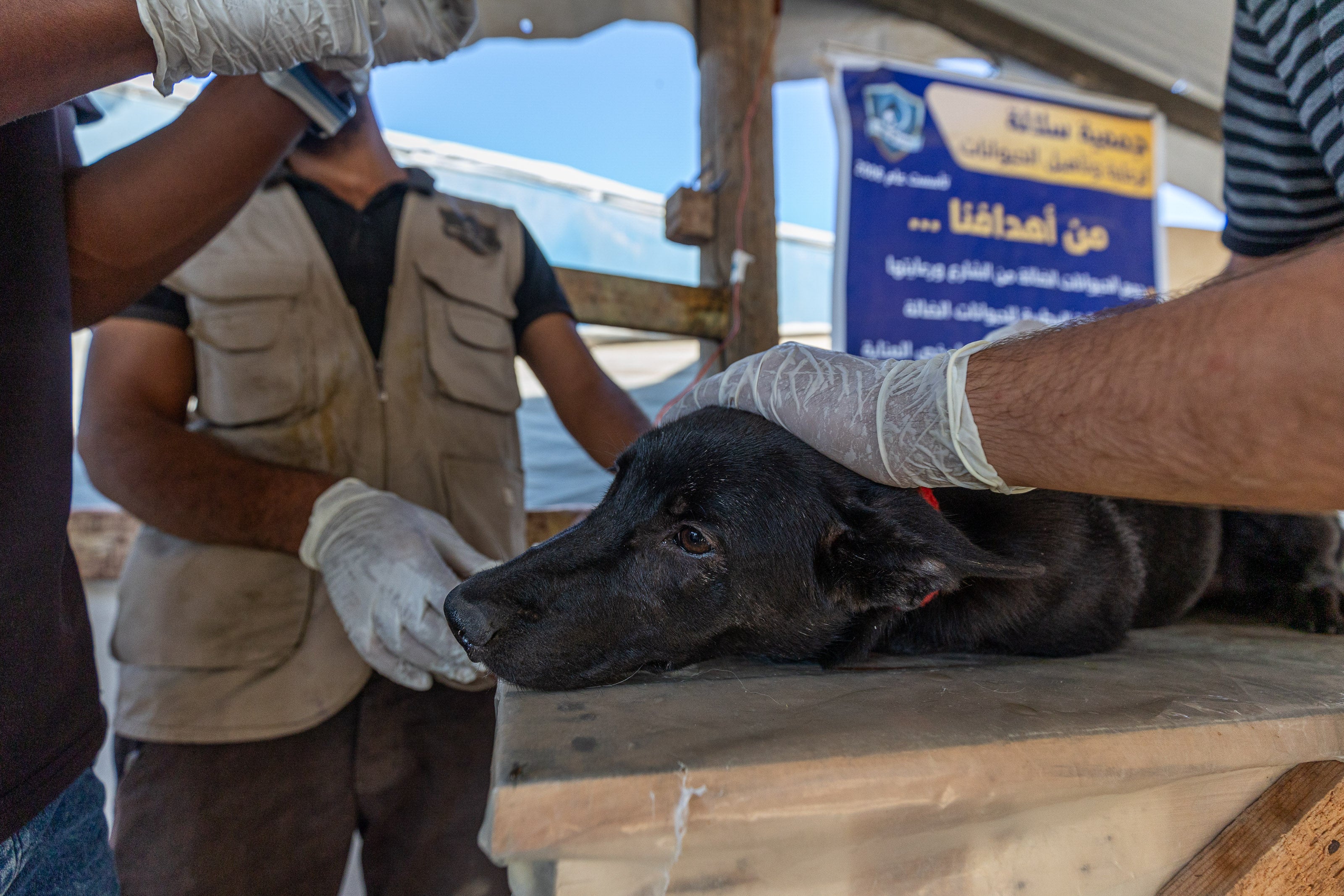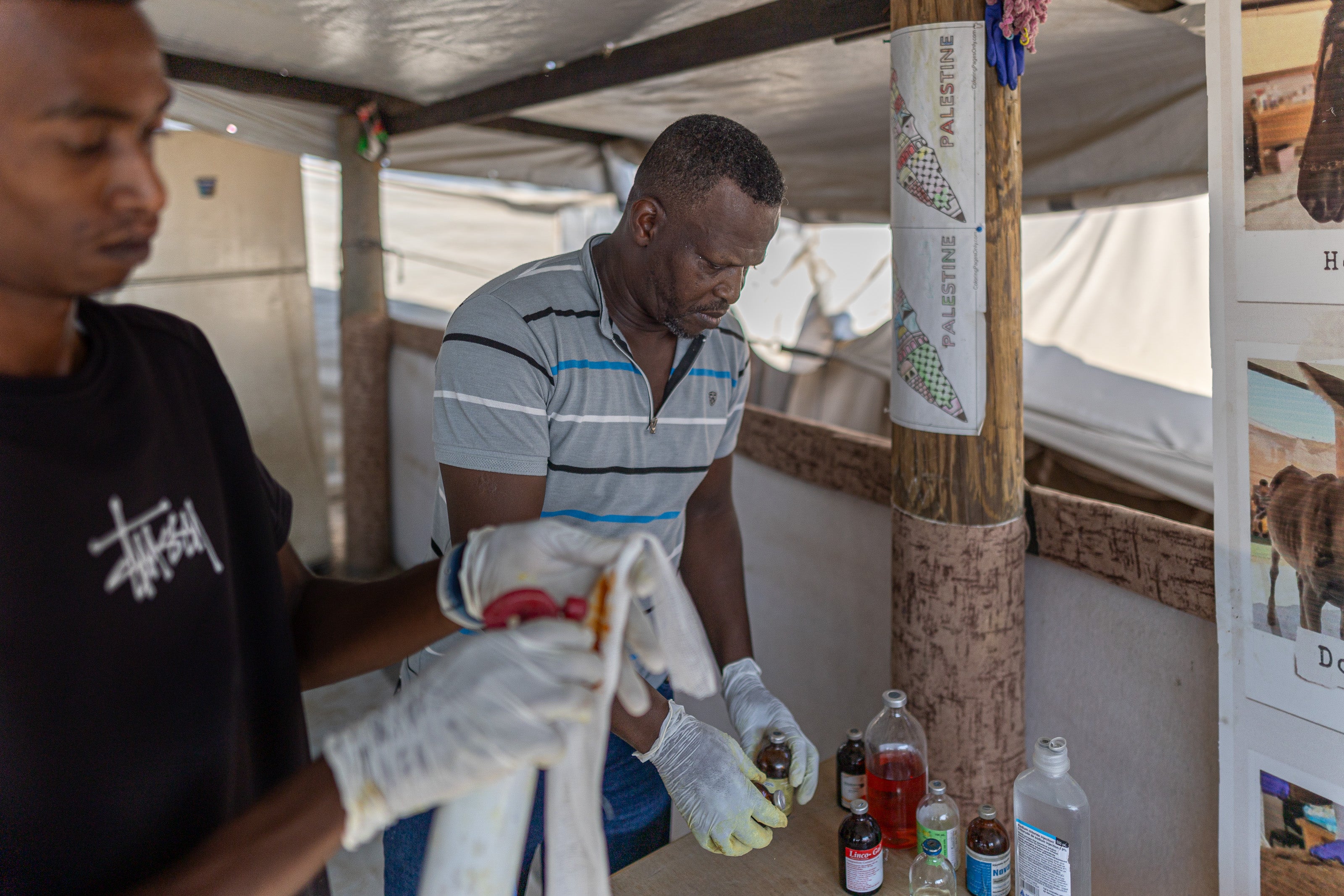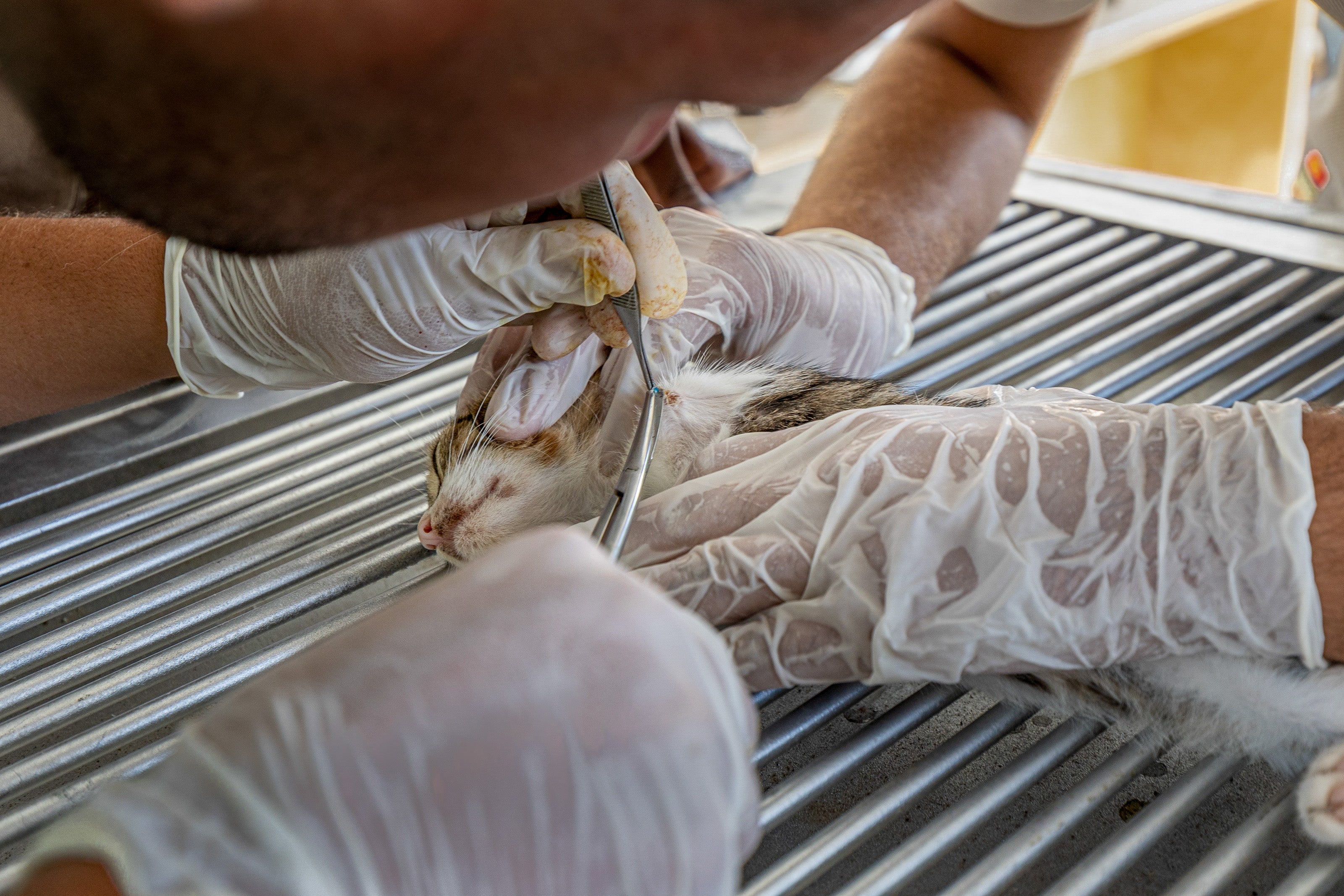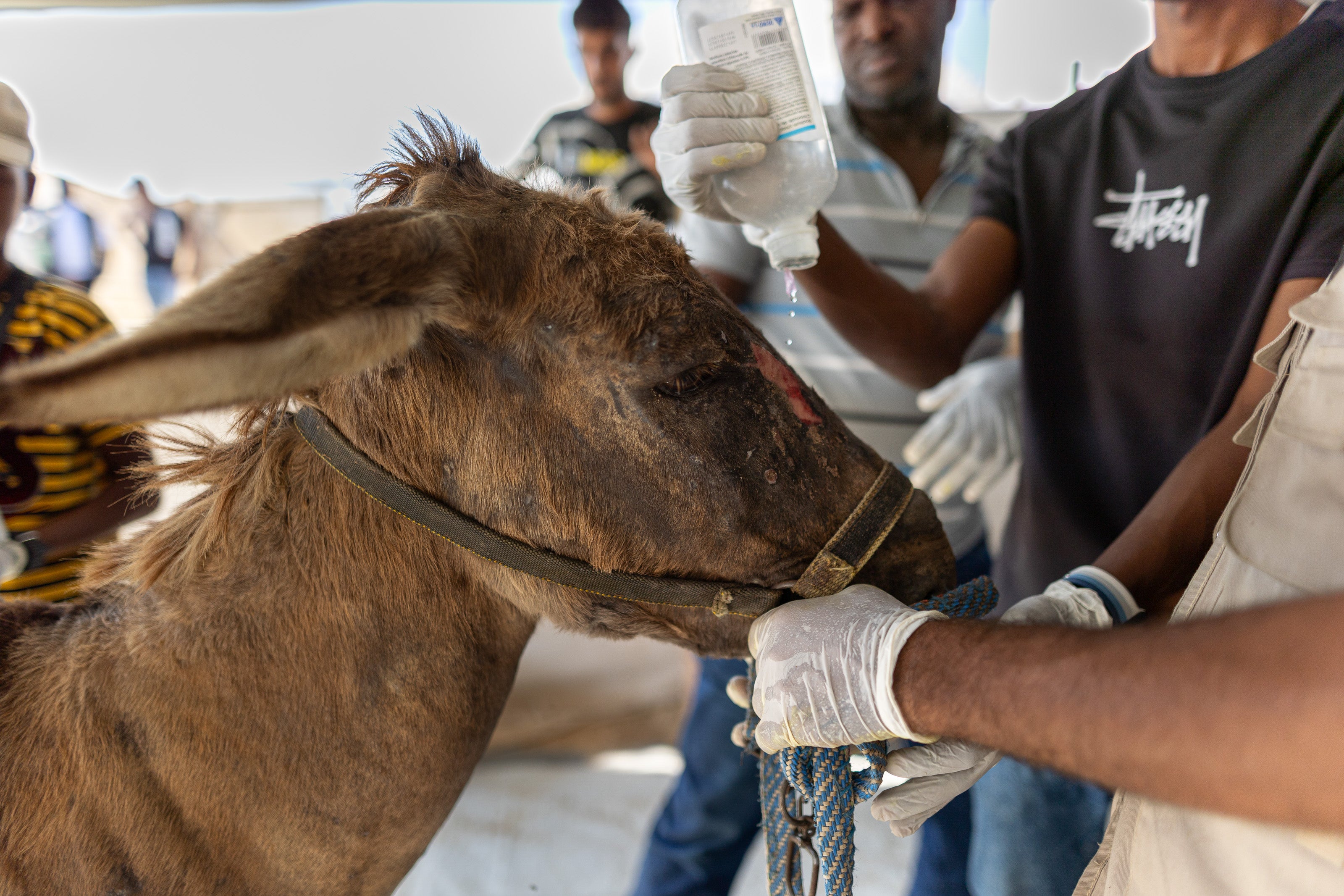Saving Gaza’s forgotten animals: The family risking all to rescue cats, dogs and donkeys in war this Christmas
Sulala Rescue has rescued hundreds of animals despite facing shortages of food and medicine
Your support helps us to tell the story
From reproductive rights to climate change to Big Tech, The Independent is on the ground when the story is developing. Whether it's investigating the financials of Elon Musk's pro-Trump PAC or producing our latest documentary, 'The A Word', which shines a light on the American women fighting for reproductive rights, we know how important it is to parse out the facts from the messaging.
At such a critical moment in US history, we need reporters on the ground. Your donation allows us to keep sending journalists to speak to both sides of the story.
The Independent is trusted by Americans across the entire political spectrum. And unlike many other quality news outlets, we choose not to lock Americans out of our reporting and analysis with paywalls. We believe quality journalism should be available to everyone, paid for by those who can afford it.
Your support makes all the difference.A heroic family-run animal sanctuary has defied the odds by “working around the clock” to save hundreds of animals suffering in Gaza during a year of intense Israeli bombardment.
Sulala Animal Rescue volunteer Sa’ed Al-Err says he has helped care for hundreds of animals, including dogs, cats, horses and donkeys, since Israel invaded the Gaza Strip in October last year.
Despite having “almost no food” and facing a shortage of medicine since the outbreak of war, Mr Al-Err, 26, and other volunteers work through Christmas, as well as Jewish and Islamic holidays, to rescue the vulnerable animals.
“When the war started, the need to help animals only increased. So our strength increased, because this is our duty,” he told The Independent.
“We have lost count of the animals we have tried to help. We receive phone calls around the clock from people every day in the Gaza Strip.
“We see a lot of animals injured under the rubble of war. They have also often been in car accidents or have been hurt by people.

“But there is almost no animal food left in the Gaza Strip, and the little food that is left with sellers is sold at astronomical prices.
“We are also running out of the medicine we had before the war, and it is a lot more difficult to buy now because it is very expensive.”
Many Palestinians had to abandon their pets while fleeing the conflict as millions of people were displaced multiple times across the territory – some animals were even left at the Egyptian border as people were evacuated.
The sanctuary was forced to leave hundreds of dogs in a shelter with the doors open and some food before evacuating south earlier this year, Annelies Keuleers, a translator for the organisation, said.

“It’s really challenging and stressful and especially for them, not knowing how many more times they will have to move and refusing to go without the animals,” Ms Keuleers said.
“They’re looking for a more permanent place to move south, but they have to take all the animals with them,” she added.
As the rescue faced further displacement and lack of essential supplies, it called on the Israeli government to allow animal food and medicine into Gaza as part of an international group of animal rescue organisations.
In Defence of Animals, an American animal welfare campaign group, published an open letter to the Israeli Knesset and members of the war cabinet urging them to allow rescuers to help the animals.

However, the organisation is yet to receive a “single response” from the Knesset despite sending over 30 other emails to the parliament, it said.
The sanctuary was set up in 2006 by Mr El-Arr’s 50-year-old father, Saeed El-Arr, after he says he saw government officials encouraging the killing of stray animals.
He embarked on a nine-month training course in Russia and registered Sulala in Gaza city as an official charity to work as a dog, cat and donkey shelter.

“Our entire family loves animals and takes care of them. This is because of our father and Sulala’s director and founder, Saeed Al-Err,” Mr Al-Err said.
“We were founded on this principle. The strength comes from the heart. We cannot stop this work for one minute. This is how we were raised. We will continue saving animals until our last breath,” he said.
The war began when Hamas militants invaded Israel on 7 October 2023, killing around 1,200 people and taking 250 hostages. Since then, Israel’s air and ground offensive has killed more than 45,200 Palestinians, according to Gaza’s health ministry.

Join our commenting forum
Join thought-provoking conversations, follow other Independent readers and see their replies
Comments